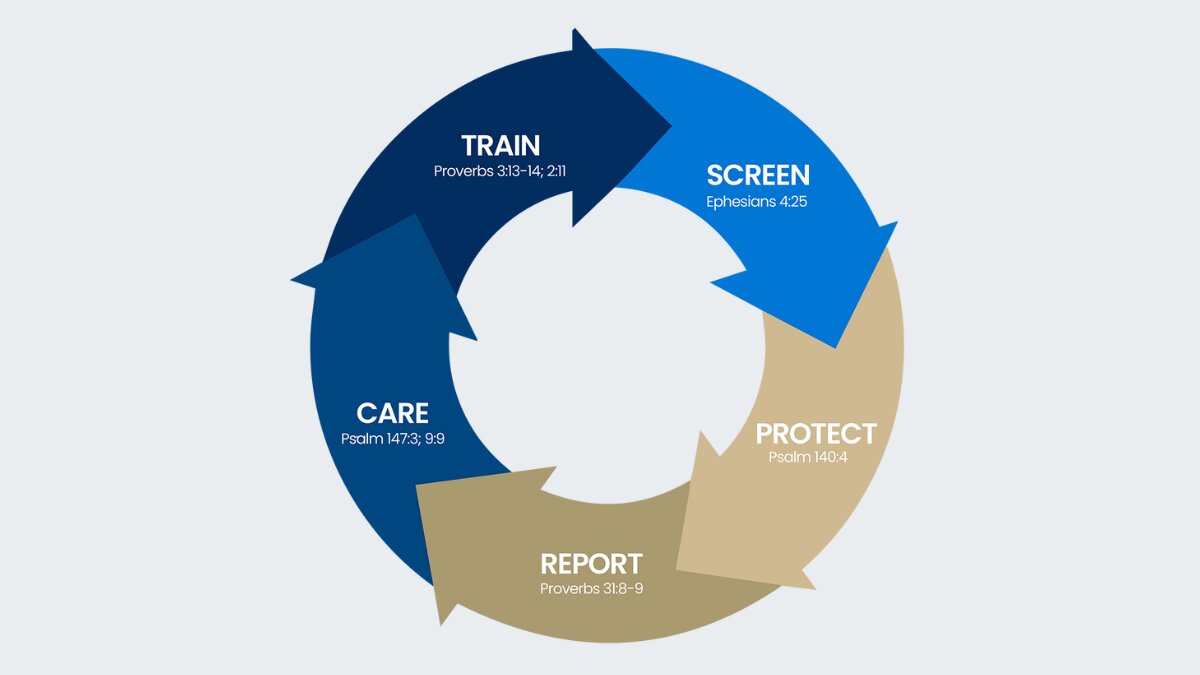“Essentials: Sexual Abuse Prevention and Response” revolves around five key words: train, screen, protect, report and care.
“The desire and goal of this toolbox is to make every church the safest place on planet earth for every child, student and adult who comes to a church,” the document says. “These tools are not designed to force anything upon your church, but instead, to give your church the tools and resources needed to make your church a safe place. To make our churches safe from abuse, we must be proactive.”
Brad Eubank, senior pastor of Mississippi’s Petal First Baptist Church and an abuse survivor himself, has been working for two years with the SBC’s Abuse Reform Implementation Task Force and has found that existing programs to combat sexual abuse in churches are too cumbersome for many small congregations.
“Our real heart is to hit normal size churches, of 100 or less, give them something a little easier to grasp, more basic, if you will,” Eubank said. “If Caring Well and Church Cares are 3.0 programs, we tried to make (the new program) a 1.0.”
Giving churches a program that is easier to grasp and implement may help toward the goal of reaching some 15,000 SBC churches that currently have no program to weed out potential sexual abusers.
Currently, Eubank noted, as many as 75% of SBC churches have no programs to screen potential abusers and care for those who have already been abused.
“We want to target them with those resources that are very easy to access,” Eubank said. “Everything is free. The training is around the five words. It is video training where they can gather five people for five months to do these five principles. Any church of any size can do this.”
The toolbox is available at SBCabuseprevention.com.
Kris Buckman, youth and kids missionary for the Baptist Convention of Maryland-Delaware, hosted cohorts for five churches using a similar program to the SBCs, with good feedback.
“We met five times online and each time we met was an hour-and-a-half, and we talked about each essential for the entire time,” Buckman explained.
“I gave them next steps for the next two weeks, things like what good training looks like, where they can get it, how often they should have it and who would be good to lead those trainings.”
Buckman directed churches to obtain additional training from Protect My Ministry or Ministry Safe, outlining the screening process for staff and volunteers.
“We’ve gotten really great feedback,” Buckman said. “It’s a big undertaking, but it really is a process. It takes a good six months to work through all of the steps.”
Each part of the program, which targets youth ministries, comes with Scripture references. For example, in the screening segment, Ephesians 4:25 is cited: “Therefore, each of you must put away falsehood and speak truthfully to your neighbor, for we are all members of one body.”
“I feel like awareness is key to everything,” noted Keith Myer, pastor of Harvest Baptist Church in Salisbury, Maryland. He heads a sexual awareness task force for Southern Baptist churches in Maryland and Delaware.
The more church staff and volunteers become aware that there is peer-to-peer abuse or that abuse tends to happen when people are unsupervised for long periods of time, the issue is on their minds, Myer said.
“What should you look for?”
With two others from his staff, Myer went through the 10-week course with Buckman and believes it has brought the issue to the forefront.
“Now there is this sense that it is important, and we need to prioritize this.”
At Harvest, the nursery leader takes the reins in training new volunteers — no one just picks up a child and sets them in their lap. Volunteers ask older babies if they want them to change their diaper. If they decline, parents are called to complete the task.
“That might seem extreme,” Myer said, “but our nursery director believes it is a way to build awareness of consent. The children are able to say yes or no.”
Having Buckman to rely on for questions is huge, especially for smaller churches who are leery of paying consultants to guide them, Myer said.
“She is a value-added feature” and helps staff and volunteers realize they need to be “alarmed to action,” he noted.
“It is imperative that church leaders are aware and understand the problem and scourge of sexual abuse that exists in our country/world and even, unfortunately, inside the church,” the Essentials toolbox says. “Statistics tell us 1 in 4 girls and 1 in 6 boys (though many believe this is much higher) are sexually abused before they turn 18. Only 16% of these victims ever reveal their abuse. Church leaders must help our churches understand that the mission, to prevent sex abuse and our response to it, is a clear and compelling gospel issue.”
The new curriculum is available via video or PDF, along with an FAQ section.
Is there widespread sexual abuse in churches? Yes, Eubank says. Is this training a legitimate way to help combat it? Yes, he affirms, noting one of the biggest problems is underreporting by victims, which sometimes takes years.
“We want to try to provide prevention so we can see this scourge stop and make churches a place where offenders will have a lot more difficulty gaining access to our kids.”
___
This story first appeared in The Baptist Paper.






